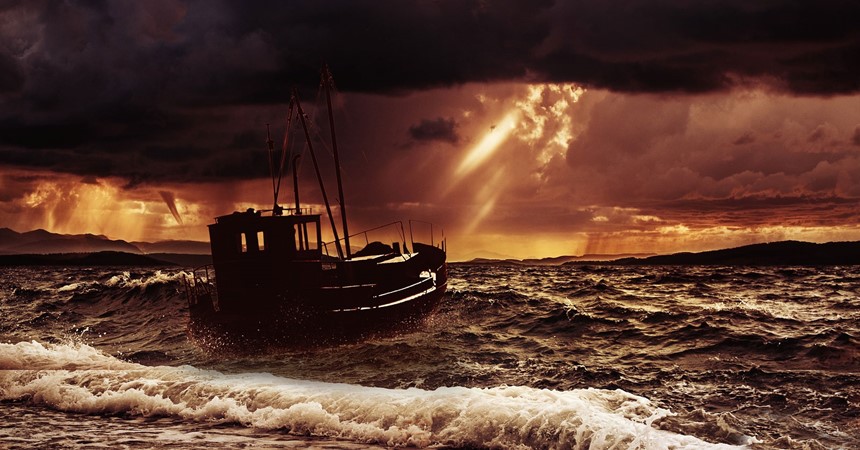On Sea Sunday we are invited to recognize and express our gratitude to this force of more than 1.5 million seafarers, (the majority coming from developing countries), who, with their hard work and sacrifices, are making our lives more comfortable by transporting, between nations and across the seven seas, almost 90 per cent of the goods.
Though their contribution is essential to the global world economy, many are the challenges experienced by these people and many are the difficulties affecting their lives and dignity. Here, I would like to recall some:
In spite of the great progress in technology that has improved communication between seafarers and their loved ones, the long months away from the family are still a huge sacrifice that often reflects negatively on family life. Mothers are left alone, forced to play multiple roles with children growing with an absent father. It is important that in our pastoral ministry, we pay special attention to the families of seafarers by initiating and supporting the creation of seafarers’ wives’ groups to provide mutual care and assistance.
The use of social media would allow the crew to be connected with many people around the world, but disconnected and isolated from each other on board because everyone is isolated in the virtual world, seeking refuge during free moments. Our function especially during visits on board is to try to create a “human connection” and strengthen the “human communication” among crew members to prevent loneliness, isolation and depression that could lead to suicide which, according to a recent UK P&I Club research, is the top cause of seafarers’ deaths.
Because of the increase of the threat of terrorism, new security measures are further restricting, in some ports, the going ashore of seafarers and sometimes even the access to the vessel of welfare visitors. Notwithstanding that, we understand the need to make the ports “a secure place” for people and goods; we must make sure that no one will be discriminated against and prevented from going ashore because of nationality, race or religion. We must advocate for the fundamental right of the crews to “have access to shore-based facilities and services to secure their health and well-being” (MLC 2006, Title 4, Regulation 4,4).
In spite of the adoption and enforcement in August 2013 of the MLC 2006 that establishes the minimum international requirements of the human and labour rights of seafarers, there are still too many cases of crew members cheated out of their salaries, exploited and abused in their work, unjustly criminalized for maritime accidents and abandoned in foreign ports. While it is our duty to provide all the necessary assistance and support to the crews which are experiencing hardship and difficulties, on the other hand we would like to call on all the maritime authorities to be more vigilant and attentive in intervening to prevent abuses and redress any wrongdoing.
Even though the threat of piracy around the maritime routes has decreased, compared with a few years ago, the danger of arms attacks and hijackings is still great in some geographical areas. We would like to invite the maritime community not to let down its guard and to implement all the necessary measures that will guarantee the safety and the protection, not only of the cargo, but most of all of the crew.
Finally, I would like to focus our concerns on fishers and fisheries who will be the focus of the XXIV World Congress which will be held in Kaohsiung, Taiwan, this October.
Similarly to seafarers, fishers spend long time at sea, often sail on fishing vessels that are not seaworthy. Their profession is considered one of the most dangerous in the world but they are entitled to lower wages and fewer benefits than those enjoyed by the seafarers. The fishing sector is plagued with cases of human trafficking, forced labour and Illegal, Unreported and Unregulated (IUU) fishing.
During the Congress, with the assistance of qualified speakers, we will increase our awareness of. and attention to, these particular issues; we will strengthen our network with the objective to increase co-operation between the Apostleship of the Sea of the different nations; we will share resources and best practices to develop specific skills, particularly in the fisheries sector.
I renew my invitation that this Congress be attended not only by the experts, but by the largest number of chaplains and volunteers, because fisheries and fishers are a concern of the Apostleship of the Sea and not only of those who are personally involved.
In concluding, let us ask Mary, Star of the Sea, to sustain our service and dedication to seafarers, fishers and their families and to protect all the people of the sea until they reach the “safe port” of heaven.
